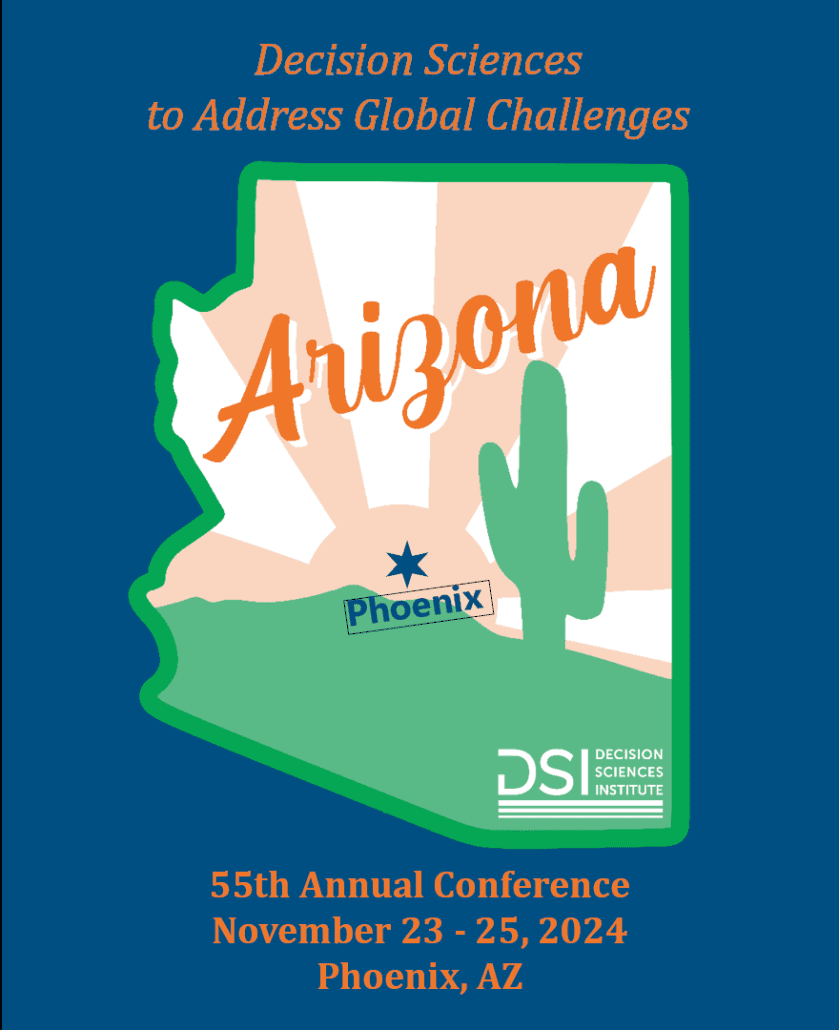
The Decision Science Institute’s 55th Annual Conference in Phoenix, Arizona, held from November 23-25, 2024, showcased impactful research from academia and industry. Our team’s two compelling presentations stood out during the event.
Predictive Analytics for Supplier Disruption
Maximilian Stout presented research titled: “Predictive Analytics for Supplier Disruption: A Case Study in the Aerospace Sector”. The research explores how predictive analytics can identify at-risk suppliers, allowing Original Equipment Manufacturers (OEMs) to take targeted resilience measures. By leveraging historical data, this approach optimizes resource allocation to minimize the impact of first-tier supply chain disruptions.
Airmiles or Fairmiles?
Prof. Roger Maull’s presentation, “Airmiles or Fairmiles?”, tackled a pressing issue: the implications of reducing airfreighted fresh produce from Sub-Saharan Africa (SSA). In recent years, there has been pressure on European supermarkets to reduce airfreighted fresh produce (fruit, vegetables and flowers) from Sub-Saharan Africa (SSA). To consider the impact of an airfreight ban we distributed a questionnaire to 69 organisations representing 6500 farms across 16 countries. We collected data on the percentage of value of products airfreighted and number of workers impacted. According to the results 18m people stand to lose their main source of income through an outright ban on airfreight. On the margin, each tonne of fruit supports around 2.5 livelihoods with that number going up for each ton of airfreight mitigated.
The conference provided a platform to delve into these groundbreaking insights on supply chain resilience and global sustainability.
